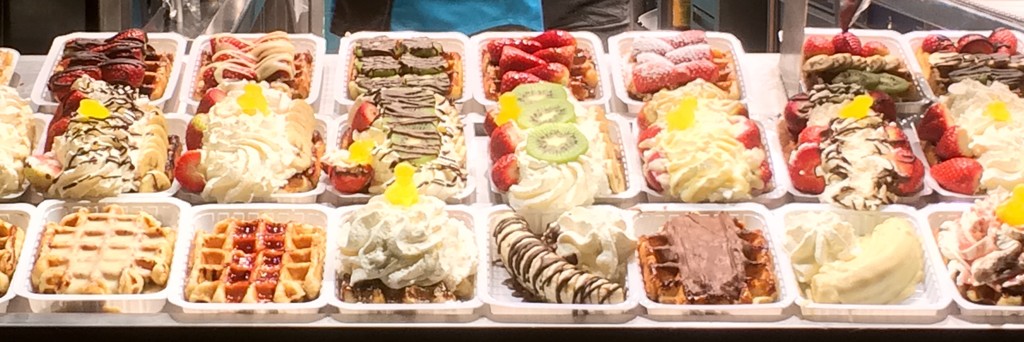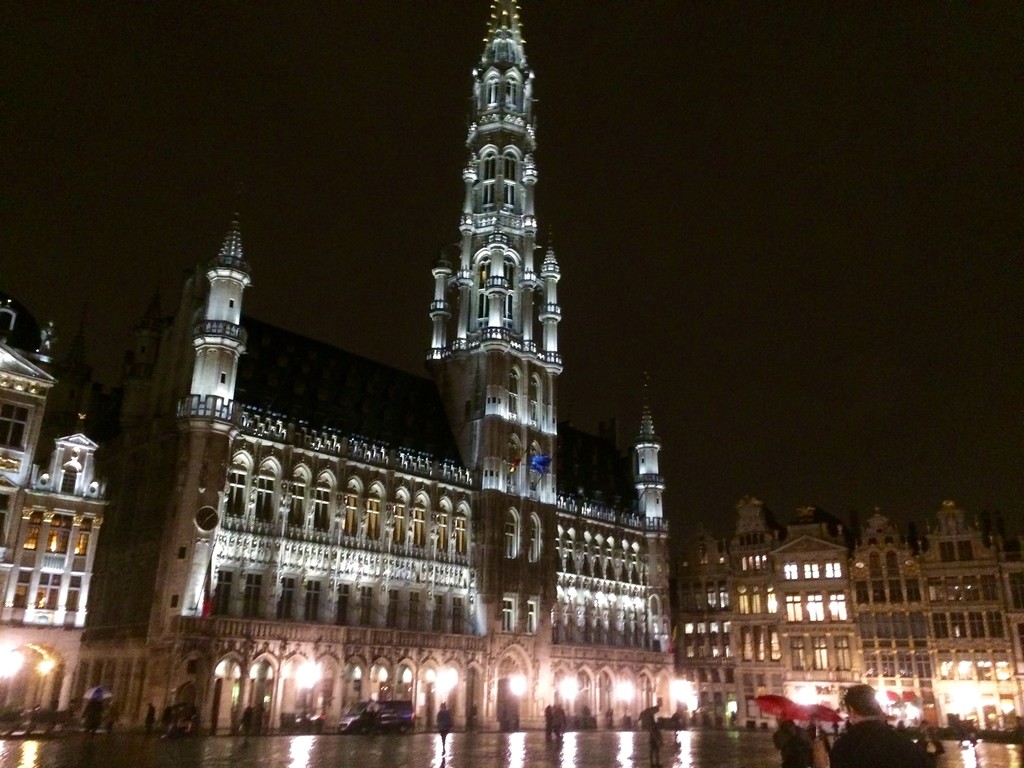What you need to know if you're coming to Brussels
Let's start at the beginning!
First, let's talk about < strong>arriving in Brussels! When you were allocated your destination, you probably realised that you had to get there somehow, and you may have decided to do so by plane. In that case, the question arises: Brussels airport (Zaventem) or South Brussels (Charleroi)? I imagine you'll pick the most affordable option, but first you should consider:
- From Charleroi you'll have to pay an extra 14 euros to get to Brussels Midi (station in the south of Brussels from which you can take public transport or a taxi). The webpage for the bus service is Brussels city shuttle and you can get a ticket for 5 euros if you buy it two or more months in advance. It'll cost you 17 euros if you haven't booked a ticket online beforehand. The journey is about 55 minutes and leaves every 20-30 minutes. You can also take shared taxis (about eight people, the taxi driver waits until they are completed). Usually, the destination and price is the same, Brussels Midi and 14 euros, unless you all go to another drop-off point and agree on an alternative with the driver.
- From Zaventem, the journey ito the city centre is shorter. A taxi full (4 people) usually costs 40 euros. There's also the possibility to take the bus (the number 12 or the number 21). They cost 4.5 euros from the ticket machine right next to the bus station. This ticket can be used for all the different public transport needed to get to your destination (if it's within Brussels).
With regard to gastronomy, typical food includes chips (I would recommend the ones from Place Flagey), machine guns (a baguette with kebab meat, chips, salad and sauce, you can adapt it to your taste), mussels or boulettes (they're meatballs although somewhat larger). If you fancy something sweet, definitely try waffles (there are many establishments on the streets between Grand Place and Manneken Pis) and the belgian chocolate.

Things are more expensive than they are in Spain, although you can always go to Lidl, Colruyt or Aldi (Carrefour is also an option but some products will still have a slightly higher price).
If you're looking for accommodation, you may have heard the term KOT. These are student flats where you share kitchen and bathroom, this is a normal sort of residence here. Room rental usually costs over 400 euros. In terms of the area, I would recommend Ixelles (near ULB and VUB). This is the area with the best student atmosphere.
Transport. If you're a student and under 26 years of age (you must meet both requirements), your university will provide you with a document that you can take to one of the STIB offices (public transport system in Brussels) and get a card that gets you a years worth of metro, tram and bus travel within the city for 125 euros (this February they have reduced it to 55 euros but I don't know how long this deal lasts). It is really worth it because otherwise each journey costs 2.5 euros (2 if you get a ticket from the machine). Public transport closes at night (from 00. 00 to 05. 00 in the morning if I'm not mistaken), although on Fridays and Saturdays it doesn't stop running until 2. 30 I think.
Also, if you want to get to know Belgium properly, the trains from Friday at 19. 00 until Sunday have 50% off for people under 26 (and you can catch whichever one you like, the ticket doesn't have a specific time or seat assigned to it), so that's a brilliant opportunity. But if you travel on a week-to-week basis, then perhaps the GoPass is better for you (10 trips for 51 euros and several people can use it although you'll have to put each person's name on the card).
As for the climate, we've been very lucky this year and there haven't been many cloudy days. The cold is only a problem if it's windy because it's uncomfortable and it makes the air feel even colder. Mind you, it isn't usually rainy and windy at the same time, so you can take an umbrella with you. The temperature usually ranges from 0 to 10 degrees in winter (it rarely falls outside these numbers).

Leisure and free time is another interesting issue. Belgians love being out in the sun. There are lots of festivals when the weather is good and the centre is always filled with people having a drink. If you like sport, there are lots of gyms which have similar prices to those in Spain, from 21 euros a month to whatever price you're willing to pay. The cinema is much more expensive, admission costs about 10 euros. Going out is different too, unless it's an Erasmus or Latino party you'll only hear pop music and the night usually starts around 10pm. 00.
If you are wondering about < strong>the language , although there are three official languages: French, Flemish and German (a very small part of the population speaks German) most young people and adults have a good level of English.
Finally, the city is very beautiful and there are many things worth seeing like the Palais Royal, The Grand Place, the Manneken Pis, the Cinquentenario Park or the Atomium.
Without further ado, I hope this has been useful for you and you enjoy the city: D
Cheers!
Photo gallery
Content available in other languages
Share your Erasmus Experience in Brussels!
If you know Brussels as native, traveler or as exchange student... share your opinion on Brussels! Rate different characteristics and share your experience.
Add experience →

















Comments (0 comments)